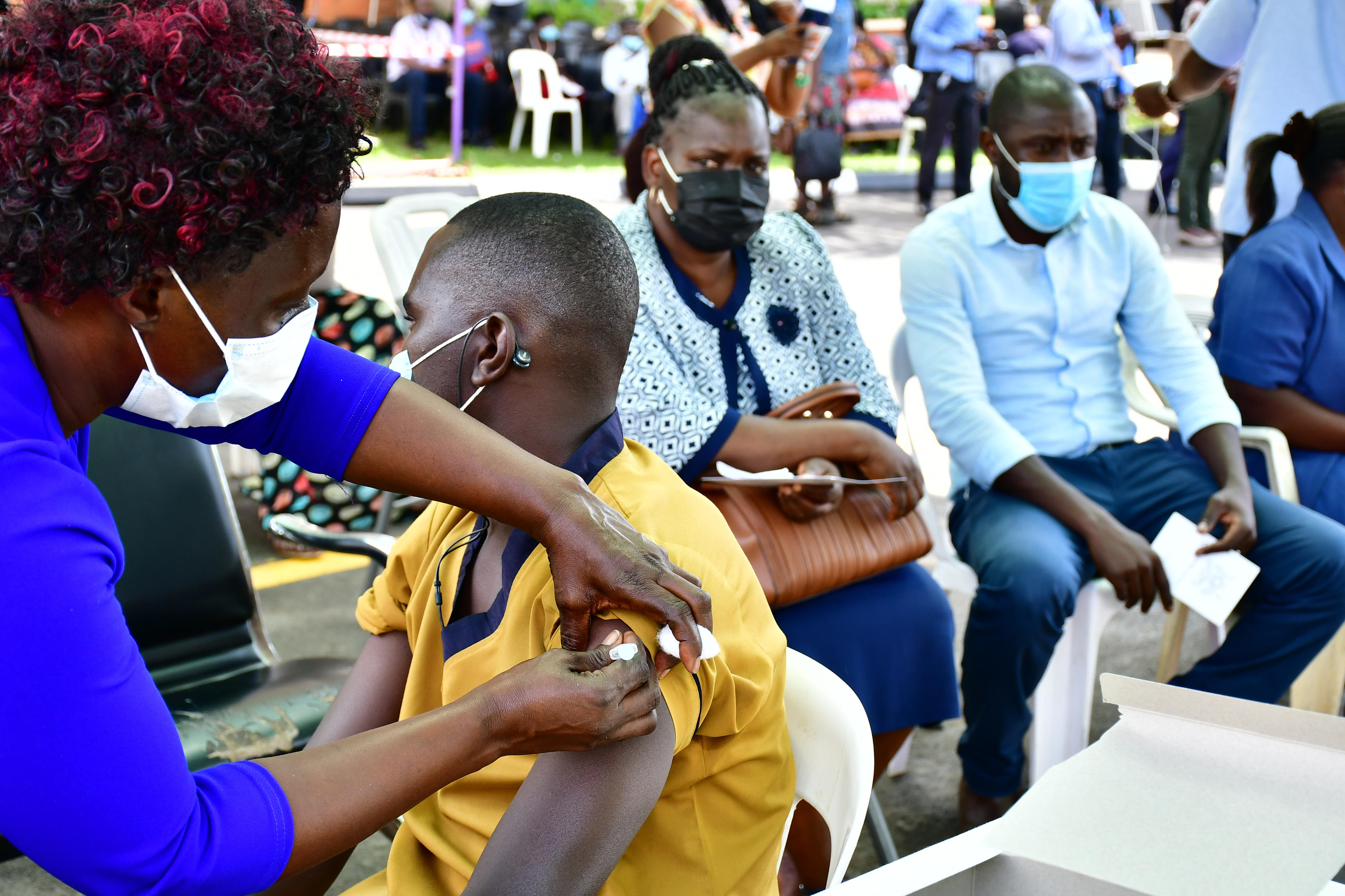Prime
Ministries lose Shs2.6t in Covid-19 budget cuts

A health worker inoculates a man with the Covid-19 vaccine during a mass immunisation exercise at Kololo Independence Grounds in Kampala in May. PHOTO / FILE
What you need to know:
- The cuts are aimed at allowing the government to generate emergency financing totalling Shs600 billion for Covid-19 response.
The government has cut the budgets for ministries, departments and agencies (MDAs) by up to 40 per cent due to worsening effects of Covid-19 pandemic on the economy and projected revenue underperformance of Shs2 trillion.
According to a July 2 circular from the Finance ministry to all accounting officers, the budget cuts will also allow the government to generate emergency financing totalling Shs600 billion for Covid-19 response.
“As a consequence of the projected shortfall in revenues of Shs2 trillion and the need to respond to Covid-19 emergency through a supplementary of Shs600 billion, budgets of MDAs have been suppressed by up to 41.2 per cent,” the circular reads.
While addressing journalists at the ministry headquarters yesterday, Mr Patrick Ocailap, the acting Secretary to the Treasury, said the government has also decided to freeze travel, workshops and seminars to cut costs.
“Reprioritisation within the sector is also important. If they had planned to travel for World Health Organisation meetings and the rest, they have to scale down on those meetings and try to reallocate money to areas such as disease surveillance and procure more test kits,” Mr Ocailap said.
“We need to recruit more health workers so that we can increase surveillance when businesses and schools reopen,” he added.
According to the Financial Year 2021/2022 Budget circular, accounting officers are “not expected to warrant any funds against these items [travel, workshops and seminars] during the first quarter.”
Although this will likely affect the workplans of MDAs, the Mr Ocailap said in the circular that expenditure limits have accorded protection to salaries, pension and gratuity.
Part of the Shs600 billion, Shs371.7 billion will finance Covid-19 emergency response but the balance will be kept in the Contingency Fund for future releases and related activities, according to the ministry.
“The supplementary for Covid-19 expenditures of Shs371.7 billion has been programmed for immediate release upon submission of the detailed allocations by each benefiting entity through the Programme Budgeting System (PBS),” it reads.
Mr Ocailap explained that not all MDAs were affected by the budget cuts. A review by this reporter indicates the health and social protection sector, local governments, security and presidency, and the agriculture sector only suffered cuts in budgets for travel and workshops.
This ranged from 0.1 per cent to 5.9 per cent of the budgets of MDAs, which the Finance ministry categorised as “protected” basing on the role they play on governance and Covid-19 response.
Mulago National Referral Hospital, the biggest Covid-19 treatment centre in the country, suffered a 0.1 per cent budget cut. This is Shs40 million against the Shs39.7 billion for non-wage and development.
But the Uganda Aids Commission, the agency leading the fight against a major killer disease, suffered a cut of Shs412 million, against their budget of Shs9.7 billion for non-wage and development.
Regional referral hospitals, which are at the forefront of Covid-19 fight as the disease penetrates the country, suffered a total 0.2 per cent budget cut. This is Shs314 million cut against Shs131.4 billion budget for non-wage and development.
The National Medical Stores suffered Shs3.1 billion cut against their budget of Shs585 billion for non-wage and development.
The Office of the President suffered a Shs1.9 billion cut (1.5 per cent) against their total budget for non-wage and development of Shs124 billion.
But the cut for State House budget was a bit higher at 2 per cent, (Shs8 billion), against their budget of Shs391 billion.
While at the Office of the Prime Minister, the budget cut was as high as 3.8 per cent (Shs4.3 billion from the relatively smaller budget of Shs114 billion.
Ministries of Justice and Constitutional Affairs, Foreign Affairs, Lands, Housing and that of Urban Development, and Uganda National Road Authority, among others, suffered 41.2 per cent budget cuts.



